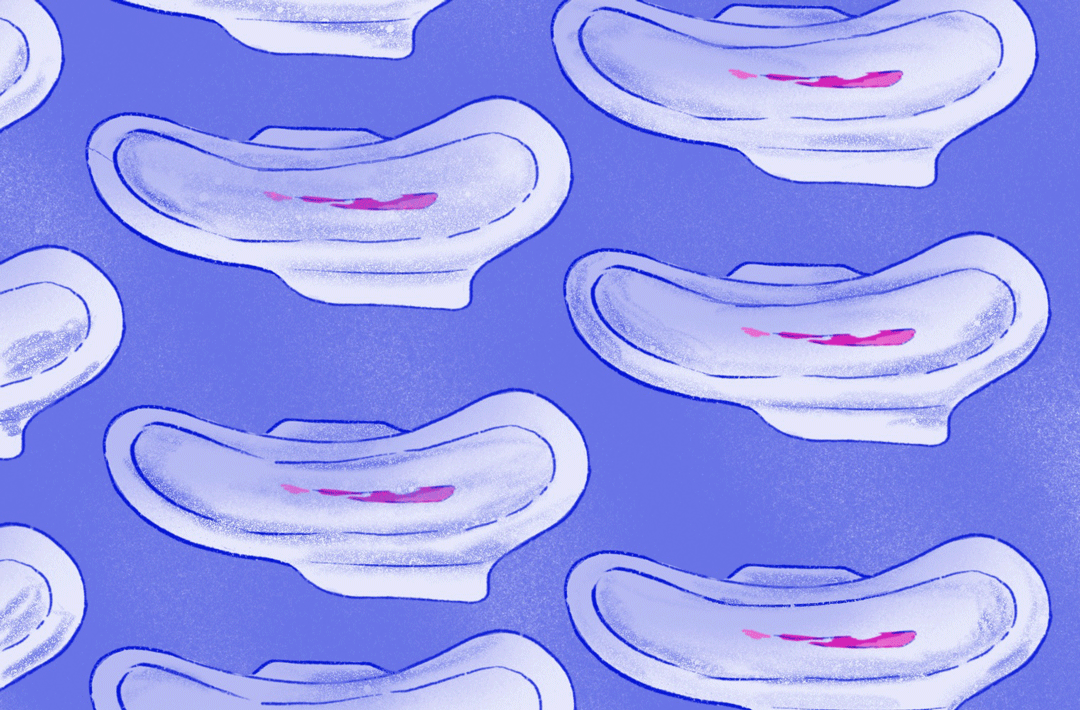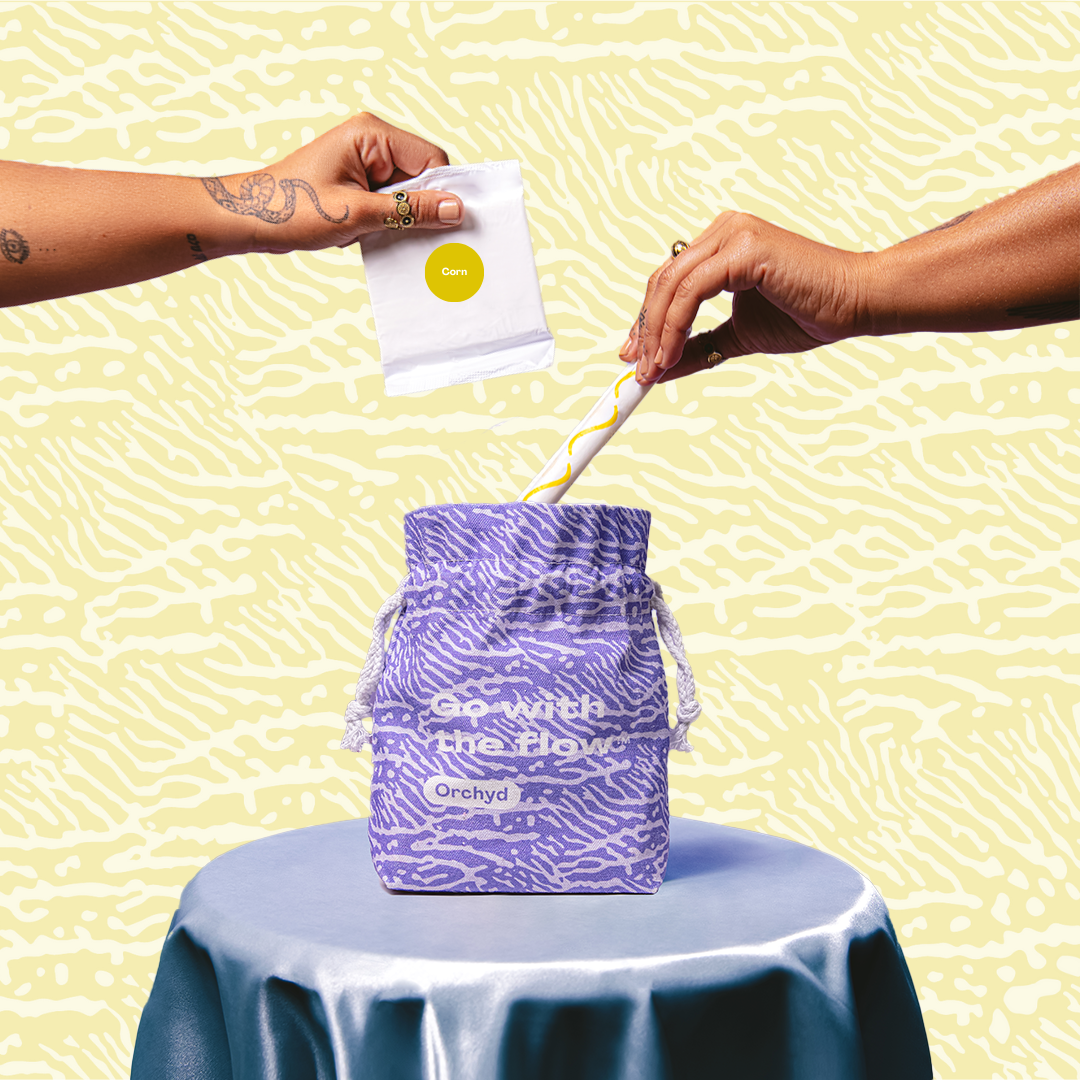
How Your Period Changes As You Age
Share
 Your period is hard enough without it throwing curveballs, so why does it always seem to be pitching a no-hitter? Right when you think you’ve got the hang of it, something in your life (or even nothing at all!) changes, and your hormones change with it, throwing your period out of whack. Granted, it oh so benevolently awards you a few years of stable predictability in your twenties and thirties but bookends the experience with tumultuous spasms of irregularity, PMS, and menopause.
Your period is hard enough without it throwing curveballs, so why does it always seem to be pitching a no-hitter? Right when you think you’ve got the hang of it, something in your life (or even nothing at all!) changes, and your hormones change with it, throwing your period out of whack. Granted, it oh so benevolently awards you a few years of stable predictability in your twenties and thirties but bookends the experience with tumultuous spasms of irregularity, PMS, and menopause.
Teen Years
As you go from prepubescent Doctor Who fanboy/girl to raging D/MILF, your hormone levels are constantly changing as you age. Most people get their first period at a median age of 12 years old, but it is very rarely followed by regular monthly periods. For many people, the “first” period often doesn’t have a follow-up session for many months or even a year. Everyone’s first period is different when it comes to discharge and duration, and some people may even experience multiple periods within a month in the beginning. But, over time, things start to find a rhythm.
20’s & 30’s
When you get into your twenties, your cycle becomes the most regular it will probably ever be, but this is only because it has ulterior motives. Your twenties are your fertile heydays, and your cycle is only on its best behavior so that you have the greatest chance of getting pregnant. It’s an utter betrayal to my hot girl summer if we’re being honest. Your early/mid-thirties are no exception either, with periods remaining regular and increasingly judgemental that you have not yet put a bun in the oven, per its instructions.
Your twenties are also when PMS starts to become more prevalent. PMS stands for Premenstrual Syndrome and is a group of symptoms that occur before the onset of your period in reaction to changing hormone levels. Common symptoms include mood swings, tender breasts, bloating, irritability, and depression. Fun, right? The symptoms usually begin one to two weeks before your period and tend to subside once it starts. PMS can be managed with exercise, painkillers, birth control, or natural remedies to soothe your body’s uncomfortable flair-ups.
Post-Pregnancy
So you gave your body what it wanted and had a baby. Good for you; I’m glad you guys worked that out. However, expect your periods to change post-birth. Most people resume a regular menstrual cycle six to eight weeks after giving birth, but only if you’re not breastfeeding. Some people who breastfeed report that they don’t get a period for the entire time, but others report a return after only a couple of months. You don’t get your period during breastfeeding because breastmilk is produced by the hormone prolactin, which suppresses reproductive hormones. As a result, you don’t ovulate while breastfeeding.
When you do start getting a period again, it is often heavier and accompanied by more intense cramping, as well as clots. This will give way to a whitish discharge called lochia for about six weeks before returning to your body’s regular period cycles.
Perimenopause
You may think that when you hit your 50s, you are suddenly menopausal, but your body actually goes through a perimenopausal phase in your 40s. Perimenopause occurs about eight years before menopause and is when your body produces less estrogen and progesterone, causing wildly irregular bleeding patterns. You can experience anything from daily spotting to random gushes of blood and palm-sized clots. As if you weren’t already excited enough for menopause!
Menopause
Here we are, the final boss. Menopause, medically, is official when you haven’t had a period for twelve consecutive months. Your body may still experience hormonal fluctuations monthly, but you won’t be ovulating anymore. Here, your period journey ends. This milestone can be very emotional for people, as our periods have accompanied us for almost our entire lives up until menopause.
It hasn’t always been a smooth ride or necessarily a consistent one, but there is comfort in a period. Whether it be a nice way to know you’re not pregnant or an efficient monthly cleansing of the system, our periods are a part of us, even when they’re gone. They are a reminder throughout our lives of the almighty power we possess within our bodies and how we must, must, use that power for evil. Pure evil. Raging, maniacal evil...who’s with me?

